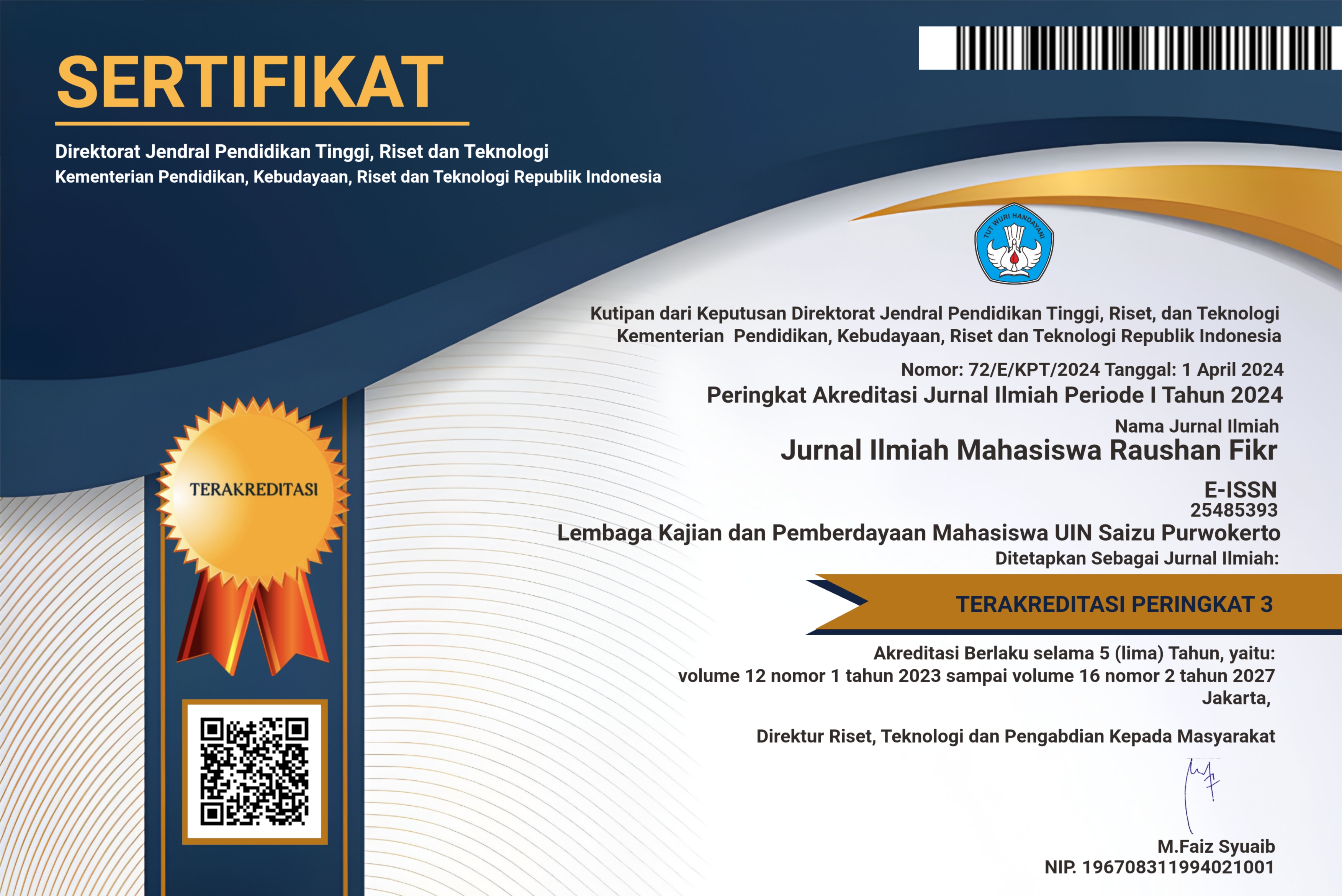The Influence of Teacher Skills in Using ICT Media and Satisfaction with Tutoring Services on Student Motivation in Learning Islamic Education at Junior High Schools in Semarang City
DOI:
https://doi.org/10.24090/jimrf.v13i1.11218Keywords:
ICT Media, Tutoring Services, Learning MotivationAbstract
This study examines the impact of educators’ ICT skills and tutoring service satisfaction on student motivation in Islamic Religious Education (PAI) at junior high schools. Using an associative approach, the quantitative research involved 120 students and 20 educators from 20 schools in Semarang City. Data collection included questionnaires, observations, and documentation, while analysis involved descriptive statistics, classical assumption tests, and multiple linear regression. Findings reveal that educators’ ICT proficiency significantly influences student motivation (t-value: 1.782 > t-table: 1.740, significance: 0.04 < 0.05). Tutoring service satisfaction also significantly impacts student motivation (significance: 0.00 < 0.05, t-value: 1.939 > t-table: 1.658). These results highlight the essential role of ICT skills and tutoring satisfaction in enhancing PAI student motivationDownloads
References
Bambang Sugeng. (2020). Fundamental metodologi penelitian kuantitatif (eksplanatif). Deepublish.
Budiningsih, C. A. (2010). Belajar dan Pembelajaran. Rineka Cipta.
Dhe Syafira Andriani. (2016). Pengaruh Kompetensi Profesional Guru dan Penguasaan Media Pembelajaran Berbasis Teknologi terhadap Prestasi Belajar Peserta Didik pada Mata Pelajaran PPKN di SMP Negeri 5 Natar. 01, 1–23.
Hendrizal. (2020). Rendahnya Motivasi Belajar Siswa Dalam Proses Pembelajaran. Jurnal Riset Pendidikan Dasar Dan Karakter, 2(1), 44–53. https://ojs.adzkia.ac.id/index.php/pdk/article/view/57/48
Imam Ghozali. (2016). Desain penelitian kuantitatif & kualitatif untuk akuntansi, bisnis, dan ilmu sosial lainnya. Yoga Pratama.
Juliandi A, Irfan, M. S. (2014). Metodologi Penelitian Bisnis: Konsep dan Aplikasi. UMSU Press.
Magdalena, I., Fatakhatus Shodikoh, A., Pebrianti, A. R., Jannah, A. W., Susilawati, I., & Tangerang, U. M. (2021). Pentingnya Media Pembelajaran untuk Meningkatkan Minat Belajar Siswa SDN Meruya Selatan 06 Pagi. In EDISI : Jurnal Edukasi dan Sains (Vol. 3, Issue 2).
Nikolaus Duli. (2019). Metodologi Penelitian Kuantitatif: Beberapa Konsep Dasar. CV. Budi Utama.
Qomariyah, H. (2016). Pengaruh Penggunaan Media Pembelajaran Berbasis ICT (Information, Communication, and Technology) terhadap Motivasi Belajar Siswa Kelas X pada Pembelajaran Ekonomi Di Sman 1 Banguntapan. 197.
Sofiyan Siregar. (2013). Metode Pemilihan Kuantitatif: Dilengkapi dengan Perbandingan Perhitungan. Kencana Prenada Media Group.
Sugiyono. (2017). Metode Penelitian (Pendidikan Kualitatif, Kuantitatif, dan R&D). Alfabeta.
Surahmadi, B., Smp N 1 Temanggung, & Tengah, J. (2016). Unnes Science Education Journal Pengaruh Media Pembelajaran Virtual Berbasis Quipper School untuk Meningkatkan Motivasi Belajar dan Hasil Belajar Peserta Didik Kelas Viii SMPN 1 Temanggung. 5(17), 1123–1127.
Tim Statistik Telekomunikasi Indonesia 2022. (2022). Statistik Telekomunikasi Indonesia 2022. Badan Pusat Statistik Indonesia.
Usman, U. (2010). Menjadi Guru Profesional. Remaja Rosdakarya.
Downloads
Published
How to Cite
Issue
Section
License
Copyright (c) 2024 Muhammad Riyas Amir

This work is licensed under a Creative Commons Attribution-NonCommercial-ShareAlike 4.0 International License.
Authors who publish with this journal agree to the following terms:
- Authors retain copyright and grant the journal right of first publication with the work simultaneously licensed under a Creative Commons Attribution-NonCommercial-ShareAlike 4.0 International License that allows others to share the work with an acknowledgement of the work's authorship and initial publication in this journal.
- Authors are able to enter into separate, additional contractual arrangements for the non-exclusive distribution of the journal's published version of the work (e.g., post it to an institutional repository or publish it in a book), with an acknowledgement of its initial publication in this journal.
- Authors are permitted and encouraged to post their work online (e.g., in institutional repositories or on their website) prior to and during the submission process, as it can lead to productive exchanges, as well as earlier and greater citation of published work (See The Effect of Open Access).
















